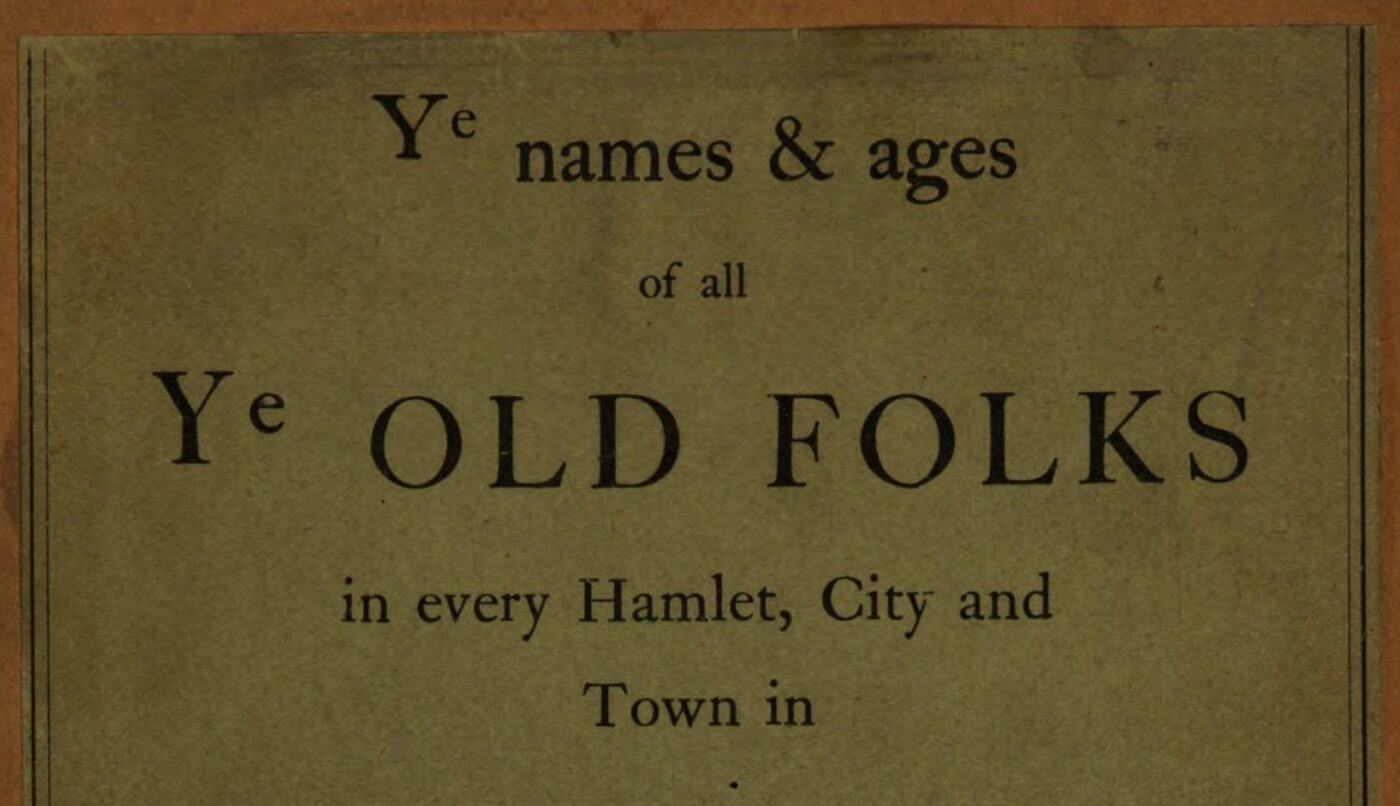Born in 1784, Elsie Chittenden of Guilford, Connecticut, was a shape-note singer born sixty years before B.F. White’s The Sacred Harp was published. As a young woman, she sang counter in her church choir when the pitch pipe was the only aid to congregational singing, and tunes like Old Hundred and Mear were the backbone of worship. Her life, spanning more than a century, offers a glimpse into the musical and social fabric of early New England. This account, drawn from Ye Names & Ages of All Ye Old Folks in Every Hamlet, City and Town in Ye State of Connecticut (1884), recounts her century of song, resilience, and memory.
HISTORY OF MRS. ELSIE CHITTENDEN, OF GUILFORD.

At the head of a list of 64 persons in Guilford who have passed their 80th year, stands Mrs. Elsie Chittenden who was born April 24, 1784, in the town of Durham, Conn. Her early education was completed in that place. Her maiden name was Reave, and long before the present century began, she was a Durham belle and sang counter in the church choir of that place, at a time when going to church meant more, oftentimes, than it seems to now. The pitch pipe was the only musical instrument permitted at the choir end of the church, the tuning fork having not yet put in an appearance, and the congregation were satisfied when Old Hundred, Mear and Dundee, or the anthem “Before Jehovah’s Awful Throne,” etc., were selected from the ancient tune book with its buckwheat notes, for their edification.
The days of Mrs. Chittenden’s youth are often alluded to in story by her and she makes a charming narrative of them. About the year 1800, or soon after, she married Mr. Joy Meigs who had been conspicuous in all good matters in the village of Durham, and she became the mother of six children, four of whom, a son, and three daughters, are living, and with the eldest of them, Mrs. Ebenezer Evarts, herself an octogenarian, she is now residing. From this devoted daughter she receives the best of care, and her every want is anticipated.
Her first husband died more than half a century ago, and marrying Mr. Charles Chittenden she removed to Guilford, which has ever since been her home. Mr. Chittenden died many years since. Of late the centenarian has kept her bed, receiving her food and talking with her friends while in a recumbent posture. For more than sixty years she has been a snuff taker, and although no disposition to relinquish the habit has ever manifested itself, she wishes it to be understood that she is not a slave to snuff. Through life, under all circumstances she has persistently refused to partake of spirituous liquors in any form. To this, by many, is attributed her tendency to longevity.
Persons and things of her early childhood she remembers and talks of very correctly, but events of the present time she does not retain. This is the case to a great extent with most of those of advanced age. She has her second sight and is able to read without glasses. In a moment of brightness the other day she called Mrs. Evarts to her bedside and said, as if the utterance inspired thoughts of joy: “My daughter, I am an old woman; I shall be one hundred years of age April 24th.” She completed her 100th year and entered upon her 101st in as good bodily health as she had enjoyed for a long period, and as she has no physical disease, has never taken medicine and does not propose to, she seems to have a reasonable promise of continuing.


Leave a Reply